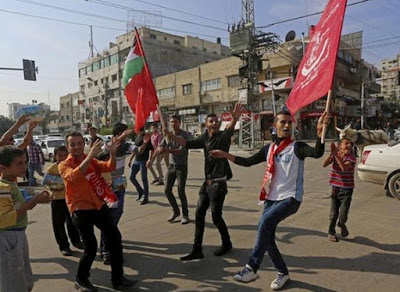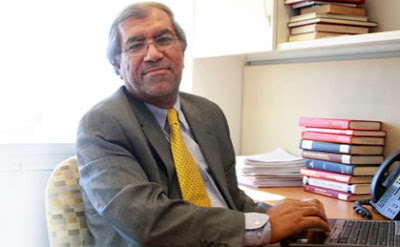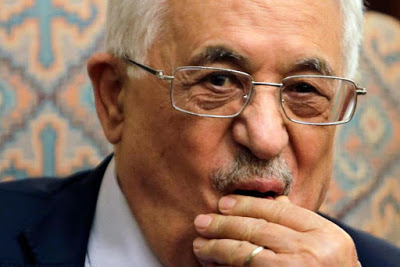
 |
| Gazan Palestinian Arabs dance for joy as word gets out of a terrorist massacre in a Jerusalem synagogue, November 18, 2014 [Image Source: AP] |
Unless a person makes an effort to be an expert on such matters, it can be confusing to know what views Palestinian Arabs hold. But not impossible. Not at all.
This isn’t for lack of reliable, credible data. Plenty of it is there, and has been for years, based on polls conducted by professional Arab organizations using solid polling techniques and respectable science.
The problem – and there are plenty – is more that analysts tend to attribute views to the Palestinian Arabs based on speeches of prominent figures, interviews with officials and (forgive us) a degree of wishful or even malicious thinking and even up being certain of things that look suspiciously unsupported. We prefer looking at the data.
We have published data-based views in the past. See –
- 10-Dec-14: What else do Palestinian Arabs want, beyond the 80% who say killing of ordinary Israelis is a good thing?“
- 22-Sep-15: What do the Palestinian Arabs think?
- 03-Nov-15: What do they mean when the Palestinian Arabs say they oppose terror?
- 14-Dec-15: What do the Palestinian Arabs think?
- 16-May-16: What do the Palestinian Arabs think?
We have just looked at recent polling data on the current views of Palestinian Arabs. This time, it’s based on a report, Palestinian Public Opinion Poll No. 60, published a week ago by the Palestinian Center for Policy and Survey Research (PSR), headed by Dr. Khalil Shikaki. (We have looked at their previous findings in those posts we just listed above.) This newest poll was carried out among Arabs in the West Bank and the Gaza Strip between June 2 and June 4, 2016. Total sample size was 1,270 adults, interviewed face to face in 127 randomly selected locations. (Margin of error is 3%.)
 |
| Shikaki [Image Source] |
For instance, when the summary at the top of the report says the poll data show “a continued and significant drop, particularly in the West Bank, in support for stabbing attacks…”, many of us will detect a flutter of optimism in our breasts.
But then you look at the numbers.
The pollsters measure a thing they call “Support for use of knives in the current confrontations with Israel“. It’s actually something simpler: Indeed, there’s been a drop in the past 90 days: it’s come tumbling down from 44% to 36% among West Bank Arabs. And from 82% to 75% in the Gaza Strip. It’s technically a fall alright. But it means 56% of the Arabs on the other side of the fence favour stabbing Jews to death, to use a less-adorned term.
Consistent with one after another past polls, the latest numbers show
two thirds demand Abbas resignation, Fatah has not gained any additional support during the last three months, and a majority of Palestinians believes that the PA has become a burden on the Palestinian people… Level of satisfaction with the performance of president Abbas stands at 34%…
 |
| Abbas: A steady two-thirds of his constituency want to see him quit and go home and take the corruption with him [Image Source] |
Ignoring that reality, the pollsters pushed on, examining how Palestinian Arabs view next steps, on the demonstrably safe assumption of an “absence of peace negotiations“. “Return to an armed intifada” gets 54%, compared with 56% three months ago. So are we closer to, or further away from, things getting worse?
(And as a by-the-way: Which US presidential candidate is seen as better for the Palestinian Arabs? 12% said Clinton. 7% went for Trump.)
- There is a clear pattern of what he terms “sympathy and even adulation” among ordinary Palestinian Arabs for bloody attacks directed at Jews. How this works – at the “in principle” level and when actual terrorist outrages are done – is truly disturbing.
- In PSR’s September 2004 survey, in-principle support for armed attacks on Israeli civilians stood at 54%. When asked how they felt about a specific bombing attack carried out in Be’er Sheba a few weeks before the poll, in which 16 Israelis were murdered, support sky-rocketed to 77%.
- PSR’s June 2006 poll found about a slightly higher level of general support for terror attacks on Israeli civilians: 56%. Questioned about a specific terror bombing in Tel Aviv attack two months before, with a death toll of 11 Israelis, support zoomed to 69%.
- PSR’s March 2008 poll found general support for terror attacks on civilians reached an all-time high of 67%. There had been two terror attacks just before the polling. One was a bombing on Israelis in Dimona during February: 78% said they were in favor of that. Then there was a much more lethal terror attack on a high school for religious boys in Jerusalem [see “9-Mar-08: Terrorism. Their world. Our world.“]: eight Israeli children were murdered. Support for that specific atrocity (children!) was measured at the stratospheric level of 84%.
- PSR stopped asking about specific terror attacks after that. Perhaps they were embarrassed. Perhaps the results generated negative feedback. We don’t know.
- Since August 2014, PSR has done eight more polls, each one including a question about Palestinian Arab respondents’ attitudes to “attacks against Israeli civilians within Israel”. Each time, the majority expressed support.
good reasons to expect, or at least to hope, that support for a concrete case of violence would be lower than for attacks against civilians in general. After all, it is one thing to favor in principle the use of bombs or guns against Israeli civilians and something else, after seeing coverage of the grisly results of a particular suicide-bombing, to declare one’s support. But in practice, the opposite effect can be observed… Disturbingly, this pattern has been consistent during the past decade and a half, with only a brief exception, as high percentages of Palestinians have supported terror attacks on Israeli civilians in general, while even higher percentages have backed specific bombings and shootings that killed and wounded Israelis.
Here’s what we said when we last looked at the poll numbers. We believe, and the polling data bear it out consistently over years, that when columnists and analysts speak of the desire of Palestinian Arabs to live in peace, to get on with ordinary, quiet, constructive lives – as compelling as this interpretation is, the data don’t support it.
Anyone paying attention to the incitement pumped, generation after generation, into their communities and heads will not be surprised. What the people living on the other side of the fence are saying is clear, credible and measurable. Being optimistic about the prospects for the sort of painful compromise that leads to peaceful relations is counterfactual and foolish, as much as we wish it were otherwise.
That’s a message we wish the public figures pushing their “peace plans” would internalize.

Leave a Reply